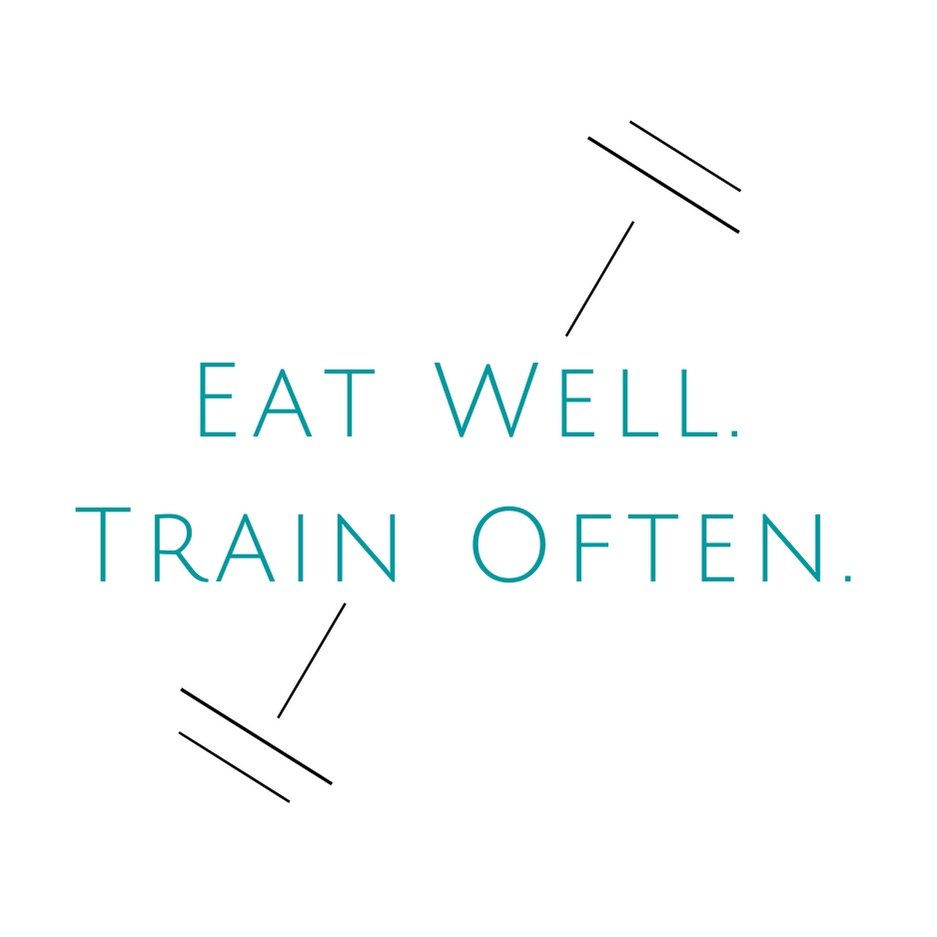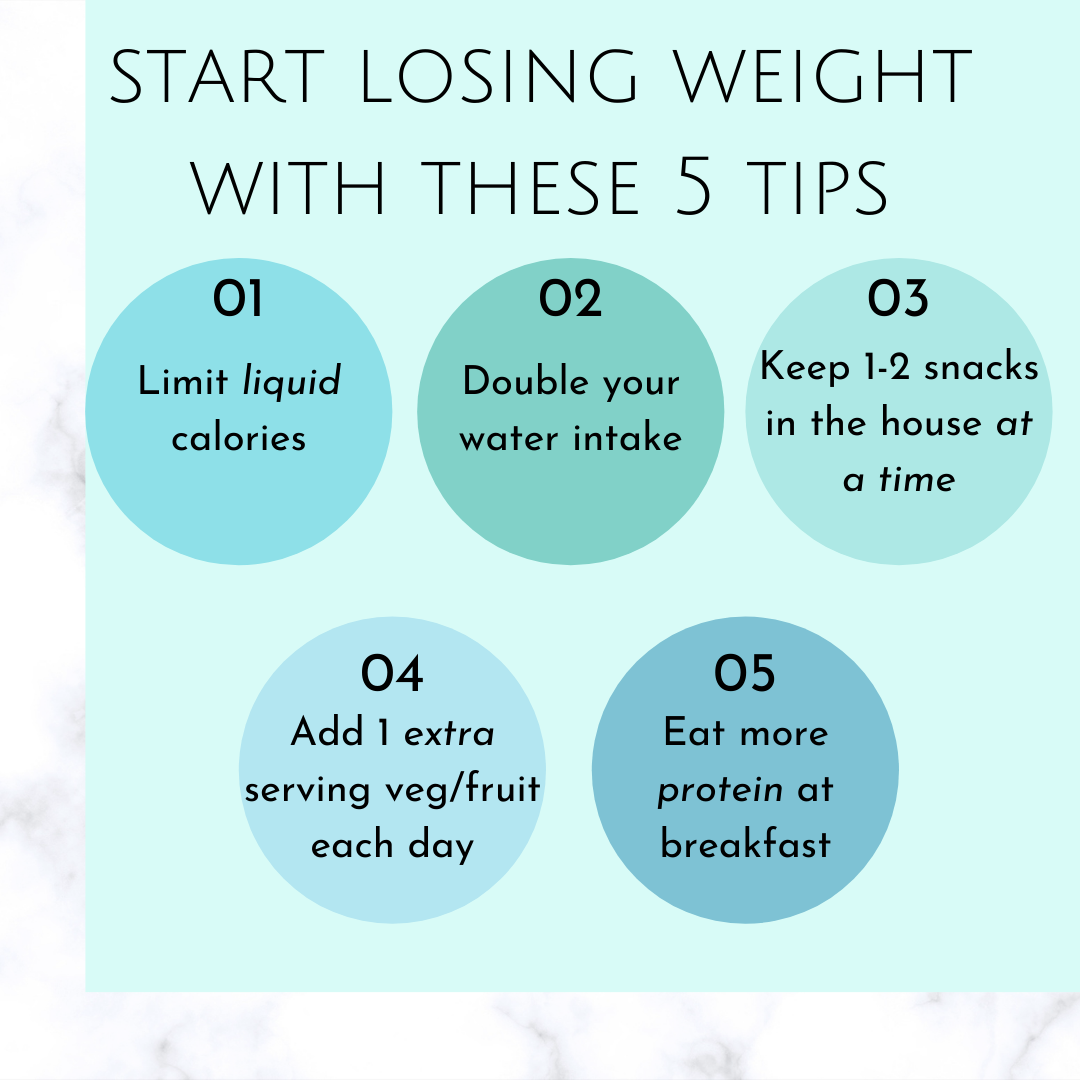5 Tips for Weight Loss
Weight loss can sometimes be really difficult to achieve, especially when constantly going through cycles of crash diets or diet trends. The media also makes it hard to determine who to trust, what to follow, and how to sustainably achieve weight loss for a long term period. One day eggs are “bad,” the next day they’re “good.” Your favorite instagram fitness model says to drink green powders and your aunt tells you to cut out carbs. Your friend tells you to try intermittent fasting because it helped her lose 50 pounds in a month, but it’s nearly impossible for you to have that schedule. No wonder why weight loss is so extremely hard!
I hear you and I want to reassure you that you don’t have to force yourself through crash diets, trendy supplements, or tons of restriction to achieve weight loss. Weight loss is essentially a result of a calorie deficit. What does that mean? Well, calorie expenditure is broken down in several ways:
Your body burns off x amount of calories each day just by being alive which is called your basal metabolic rate (aka what everyone calls their “metabolism”)
When you fidget at your desk or talk a lot with your hands, these types of movements are called non exercise activity thermogenesis (in other words, your body burns a small amount of calories just by moving a little extra in daily life)
By eating food, your body needs to use energy to digest the food which is called the thermic effect of food and
Of course, when you exercise or do any type of physical activity, you burn calories then too!
All of these factors contribute to the amount of calories expended by your body. However, the one huge factor here that we cannot forget is calorie intake. What you eat largely affects whether or not you will be in a calorie deficit. Eat more than you burn, you will be in a calorie surplus. Eat as much as you burn, you will be in maintenance mode. Eat less than you burn, and BOOM!…calorie deficit. There are still many ways that this concept can be abused and result in unhealthy weight loss. For example, if your calorie deficit is much larger than your body can handle, your metabolism may make it harder for you to keep the weight off after a while. I also often see calorie tracking and obsession with numbers resulting in disordered eating habits or eating disorders.
All I can say is that if you are looking to lose weight and keep it off, starting with slow, realistic, and sustainable goals for lifestyle changes will be your best bet and bring the most success. Here are some tips to keep in mind and help you along this journey:
Limit liquid calories
Sugary beverages or alcoholic drinks can quickly add up and increase your calorie intake especially when you are not so mindful of it. Being sure to read the nutrition labels to see if it is a high calorie drink can be helpful. If juice or soda is a must, maybe consider diluting it just a little bit with water. Otherwise, many drinks come in sugar free versions as well.
Double your water intake
Most people are generally dehydrated in the first place, so increasing your water intake can help not only lose weight, but also properly hydrate your body. This increase in water intake also often helps to take up space in your stomach which may decrease the feeling of hunger. It also helps with bowel movements and keeping digestion regular. Lastly, going hand in hand with the first tip, relying more on water rather than caloric beverages will decrease your calorie consumption.
Keep 1-2 snacks in the house at a time
If you are a snacker and often keep a bunch of your most guilty pleasures in the house, I highly recommend you to stick to this tip. If you have the ability to control your environment and control what goes in and out of your house, take advantage of that. Do your future self a favor and enjoy one thing at a time. Don’t let those frequent grocery sales tempt you to get in the way of your goals. I am always an advocate for “all foods fit” but all the foods don’t have to fit all at once ;)
Add 1 extra serving of vegetables/fruit each day
Vegetables and fruit tend to be naturally lower in calories compared to other processed foods. Produce also has the added benefits of vitamins/minerals, fiber, and even increased water content. All of these benefits can help prolong the feeling of fullness and prevent you from overeating empty calories (aka foods with a lot of energy but not a lot of nutrients -> candy, soda, chips, sweets, etc.)
Eat more protein at breakfast
More recent research has shown that increasing protein intake at breakfast can decrease the likelihood of overeating later in the day or being tempted by cravings. This is simply because protein increases satiety and starting your day off with less hunger can maintain/control your hunger cues (aka ghrelin and leptin) throughout the day. It even has been shown to control blood sugar levels better which may be related to how your body decides to store excess calories as fat.
Hopefully this information was easily digestible (pun intended) for you! These tips are not the end all be all to weight loss but they can certainly add to the bigger picture. Keep in mind that weight loss can even be related to a whole bunch of other related factors like sleep, stress, physical activity, etc. Always remember that baby steps and small, realistic goals are the keys to success!
For more posts like this, click here to keep learning!

